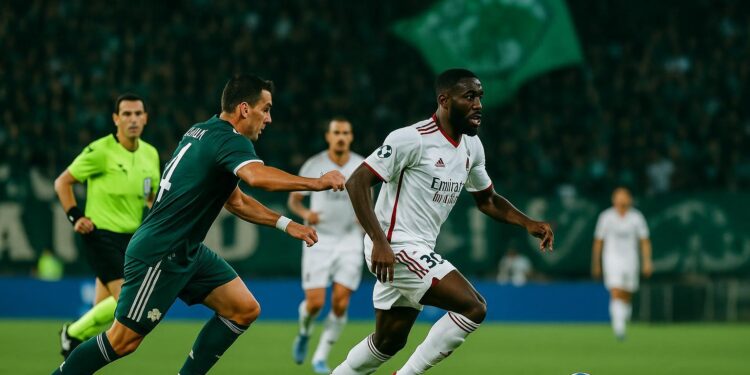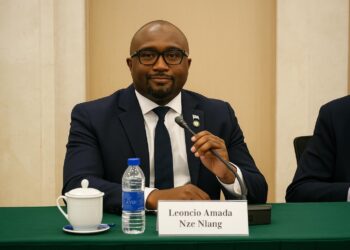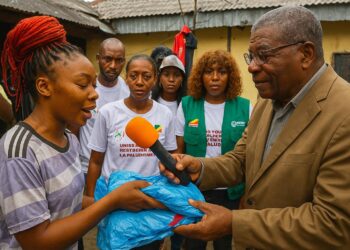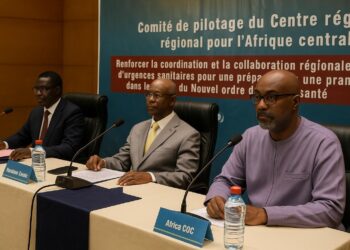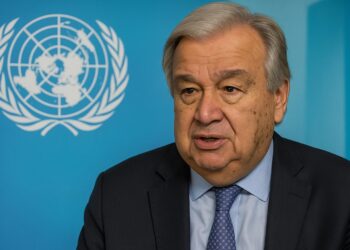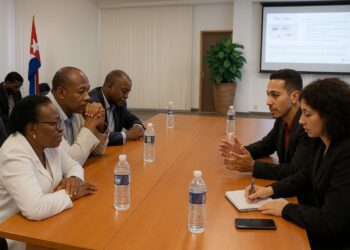Overview
From Pafos to Trondheim, Congolese footballers spent the week shaping the crucial first legs of UEFA play-offs, carrying both national pride and soft-power significance. Their performances inform diplomatic conversations about talent mobility, investment, and the subtle projection of Congo-Brazzaville’s image abroad.
Champions League Play-Off Outlook
The Cypriot club Pafos FC struck the first blow in Belgrade, defeating Red Star 2-1, a result that startled regional pundits who treat the Serbian venue as a citadel. Coach Darko Milanič opted for depth, introducing Congo’s Mons Bassouamina after seventy-three minutes.
The forward, who scored on debut last month, has since been used sparingly—just sixty-four minutes across three outings. Analysts at Cyprus Mail and Mozzart Sport note that Milanič values his late-game pace against tiring defences, preserving the option for the decisive return leg on 26 August.
Europa League Paths for Congolese Exports
Three different leagues—Croatia, Turkey, and Cyprus—feature Congolese internationals in Europa League contention after the midweek fixtures. Each scenario illustrates a different stage of club ambition and nationality branding within Europe’s dense football economy.
Rijeka and Ndockyt Edge PAOK
HNK Rijeka’s 2-1 victory over PAOK Salonika resonated strongly along the Adriatic. Midfielder Merveil Ndockyt, substituted on seventy-five minutes, stitched together passing sequences that enabled winger Lindon Selahi’s late winner, according to Croatia’s Sportske Novosti match chart.
Sources inside the Rijeka camp describe coach Dragan Tomić’s plan to exploit PAOK’s high pressing with vertical transitions. Ndockyt’s ability to receive under pressure has become central to that approach, and Greek daily Kathimerini expects him to start in Thessaloniki on 27 August.
Makoumbou Commands Midfield in Athens
In Athens, Samsunspor fell 2-1 to Panathinaikos, yet Antoine Makoumbou’s eighty-eight minutes offered a showcase of poised ball retention. Turkish outlet Fanatik highlighted his 91 percent pass completion, and club staff emphasise that away goals have been abolished, keeping the tie balanced before the Samsun return.
Makoumbou, acquired from Cagliari this summer, told Radio Sportiva that he feels ‘a responsibility to inspire young Congolese following Turkish football from Pointe-Noire’. His comment reflects broader patterns of remittance and transnational fan engagement being studied by sociologists at the University of Kinshasa.
AEK Larnaca’s Narrow Loss and Gnali’s Suspension
Up in Norway, AEK Larnaca conceded twice before scoring a late reply against SK Brann. Defender Jérémie Gnali, suspended after a red card in Warsaw, could only watch from the stands, but Cypriot press reported his animated halftime pep-talk translated by assistant Panayiotis Fyssas.
Brann’s synthetic surface and persistent drizzle unsettled the Cypriot side, yet visiting director Xavi Roca insisted to La Provincia that the tie ‘remains open, especially with Gnali’s leadership returning in Larnaca on 27 August’. The defender’s aerial strength is deemed crucial against Brann’s set-piece proficiency.
Performance Metrics and Diplomatic Capital
While club supporters focus on aggregate scores, embassies track less visible metrics. The Ministry of Foreign Affairs in Brazzaville has quietly compiled data on minutes played, broadcast reach, and social-media sentiment, officials confirmed. Such dashboards feed into public diplomacy reporting similar to cultural-festival mapping.
Economists at the African Development Bank argue that successful players overseas foster an intangible national brand that eases future trade missions. They cite empirical work from the University of Oxford showing a three-percent rise in bilateral merchandise exports linked to spikes in televised football exposure.
Domestic Repercussions for Congo-Brazzaville
Back home, the sports ministry plans to upgrade the municipal stadium in Dolisie, partly to stem player migration by offering improved capacity for scouts, according to ministerial draft budgets seen by this magazine. Officials stress the project aligns with President Denis Sassou Nguesso’s broader human-capital agenda.
Youth academies in Brazzaville and Owando have already adopted video-analysis suites funded through public-private partnerships. Coaches interviewed by Télé Congo believe the success of Bassouamina, Ndockyt, Makoumbou, and Gnali is persuasive evidence that the domestic pyramid can produce export-quality talent with sustained institutional support.
Looking Ahead to Decisive Second Legs
With all four ties delicately poised, Congolese eyes will turn to 26 and 27 August. Qualification would place at least one diaspora star under Champions League lights this autumn and preserve three Europa League routes, amplifying both sporting ambition and the Republic’s strategic visibility.
Historical Perspective on Diaspora Influence
Congo-Brazzaville’s footballing diaspora is not a new phenomenon. In the late 1990s, striker François M’Pelé’s achievements at Paris Saint-Germain were harnessed by embassies to introduce investment dossiers, archived cables show. Scholars see a direct line between that era and today’s coordinated brand strategy.
The difference in 2024 is the data ecosystem surrounding each kick of the ball. Mobile-money firms report spikes in micro-transfers to relatives each time a Congolese player trends on European social platforms. That financial ripple illustrates how sport intersects with the government’s digital-economy priorities.
Diplomats interviewed argue that UEFA matchdays become de facto cultural fairs, where flags, songs, and online chatter contribute to a mosaic of national storytelling. For a mid-income country seeking diversified partnerships, sustaining positive narratives around its athletes is considered both pragmatic and low-cost.

































